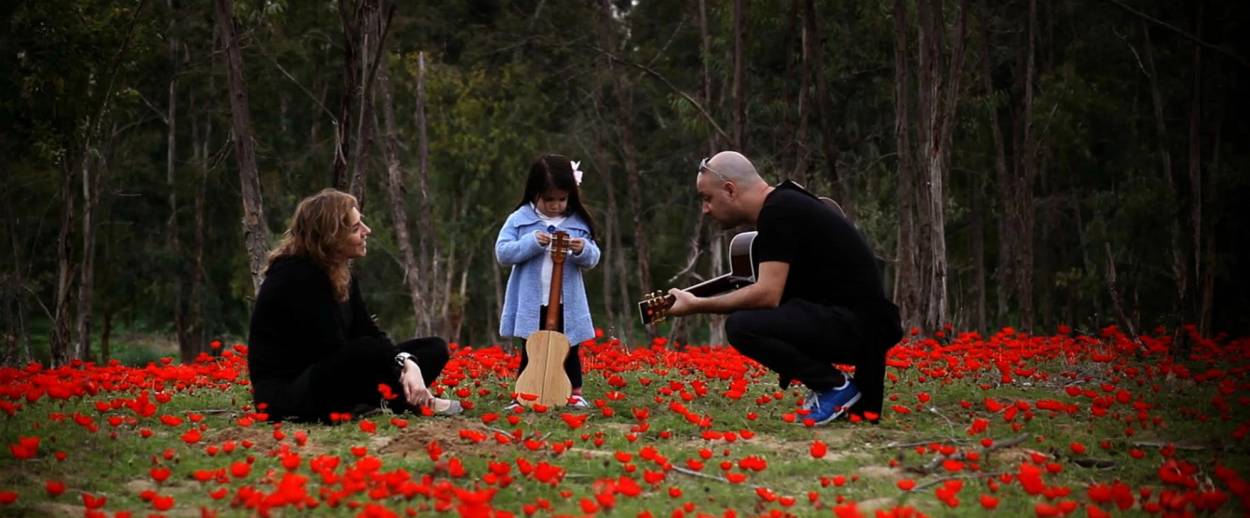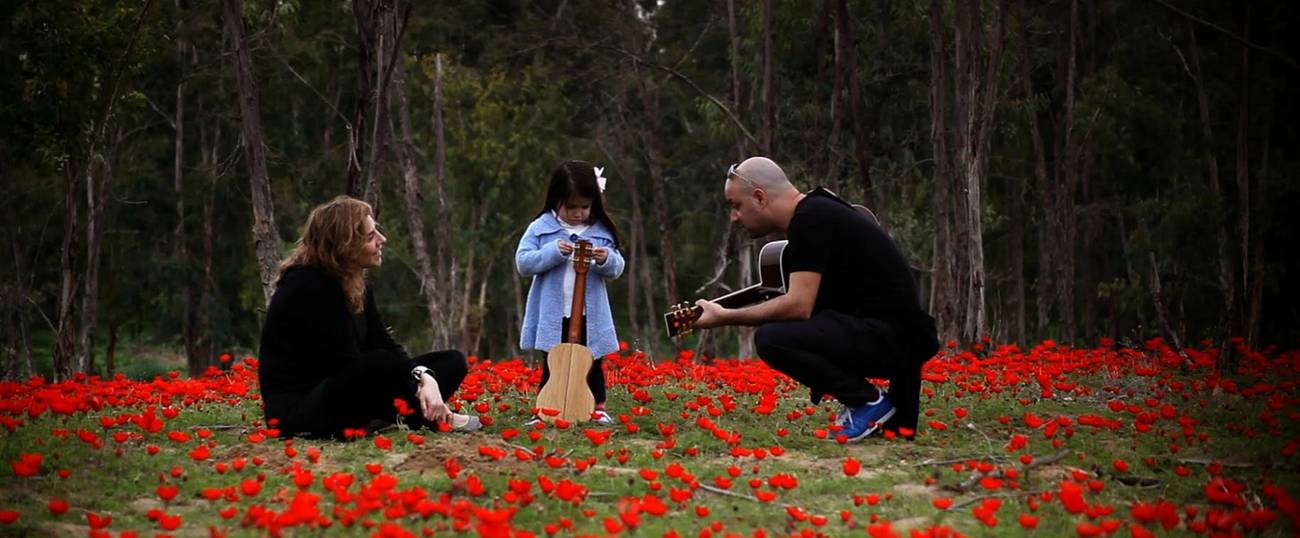Love and Rock ‘N’ Roll in Sderot, an Israeli City Under Near-Constant Fire
A new documentary from filmmaker Laura Bialis explores the influential music scene in a place you’d least expect




The story goes like this: A woman journeys to a desolate, forsaken, and unlovable place for purely professional reasons. There, she falls in love—first with the place itself and the brave spirit of its people, and then with a local who becomes her husband and the father of her child. Now, she’s made a movie about her experience.
The woman is Laura Bialis, whose documentary film Rock in the Red Zone recently premiered at the San Francisco Jewish Festival, and will open to a wider release in November; and the place is Sderot, a city in southern Israel near the Gaza Strip that’s populated mainly by Jews from Moroccan backgrounds (with some Persian and Kurdish Jews also in the mix), who settled there in waves of mass immigration in the 1950s. For years, Sderot—a city far from the center of Israel with limited economic and educational opportunities—has been shelled by rockets over 2500 times since 2012. In fact, the city has special underground playgrounds so that kids who have to spend much time in bomb shelters will have something fun to do. (A recent study showed that 40% of Sderot’s children suffer from post-traumatic stress.)
And yet, Sderot is home to an important part of the Israeli music scene. It’s the place of origin for bands who employ both contemporary Israeli and North African rock influences, such as Teapacks, Knesiyat Hasechel (Church of Reason) for which poet and writer Shimon Adaf wrote lyrics, and Sfatayim (Lips). In fact, in Sderot, Bialis met Avi Vaknin, a musician who would soon become her husband, as well as Hagit Yaso, an Ethiopian immigrant who won Israel’s reality TV show, “A Star is Born,” in 2011, and musician Micha Biton. In a phone interview, Bialis told me, “The movie is really about an investigation of the creation of art under fire.”
In 2007, the Israeli-born Bialis, who grew up in Los Angeles, traveled there after completing REFUSENIK a film about the thirty-year movement to free Soviet Jews. (She has also previously made a film about a Holocaust survivor turned civil rights activist and a documentary feature about Kosovo. A graduate of Stanford and USC film school, Bialis considered traveling to Sderot after an Israeli friend sent her an article about the flood of rockets that land there; her decision was cinched upon learning that Israel’s entry to the 2007 Eurovision song contest, the Kobi Oz-fronted band Teapacks, was from the town.
At the time, her future husband, Avi Vaknin, was running a program called “Sderock” which gave local kids a chance to express themselves through music. Though Vaknin was willing to let her interview the kids he taught, he was initially uncooperative with Bialis herself, thinking she was a person who was just going to come to town briefly, get some footage and leave. But time—Bialis edited the film over a 7-year span—and her willingness to bring sound equipment he needed from the States, changed his opinion—so much so that they were married and now have a daughter.
Yossi Klein Halevi, a senior fellow of the Shalom Hartman Institute in Jerusalem and author of a recent article on Israeli music is quoted in the film. Via email, he wrote: “The remote town of Sderot was the unlikely setting for a breakthrough in Israeli music in the 1990s that brought East and West together in a new rock fusion. Thanks in part to the musicians of Sderot, Israeli culture today reflects our amazing diversity. That’s one of the crucial stories this film tells. The other is how the people of Sderot have withstood years of rocket attacks from Gaza. The intersection between these two stories has created one of the most compelling Israeli documentaries in years.”
A music industry insider once told Bialis that her film exemplified the “birth of hip hop, about kids in the ghetto, making art out of their pain.”
Rock in the Red Zone will be released nationwide in the fall. Watch the trailer below:
Previous: A Sderot Bomb Shelter, as Art
A Look at Israeli Life Just Outside the Gaza Strip
Related: Organizing Life Around Hamas
Beth Kissileff is the editor of the anthology Reading Genesis (Continuum, 2016) and the author of the novelQuestioning Return (Mandel Vilar Press, 2016). Visit her online at www.bethkissileff.com.